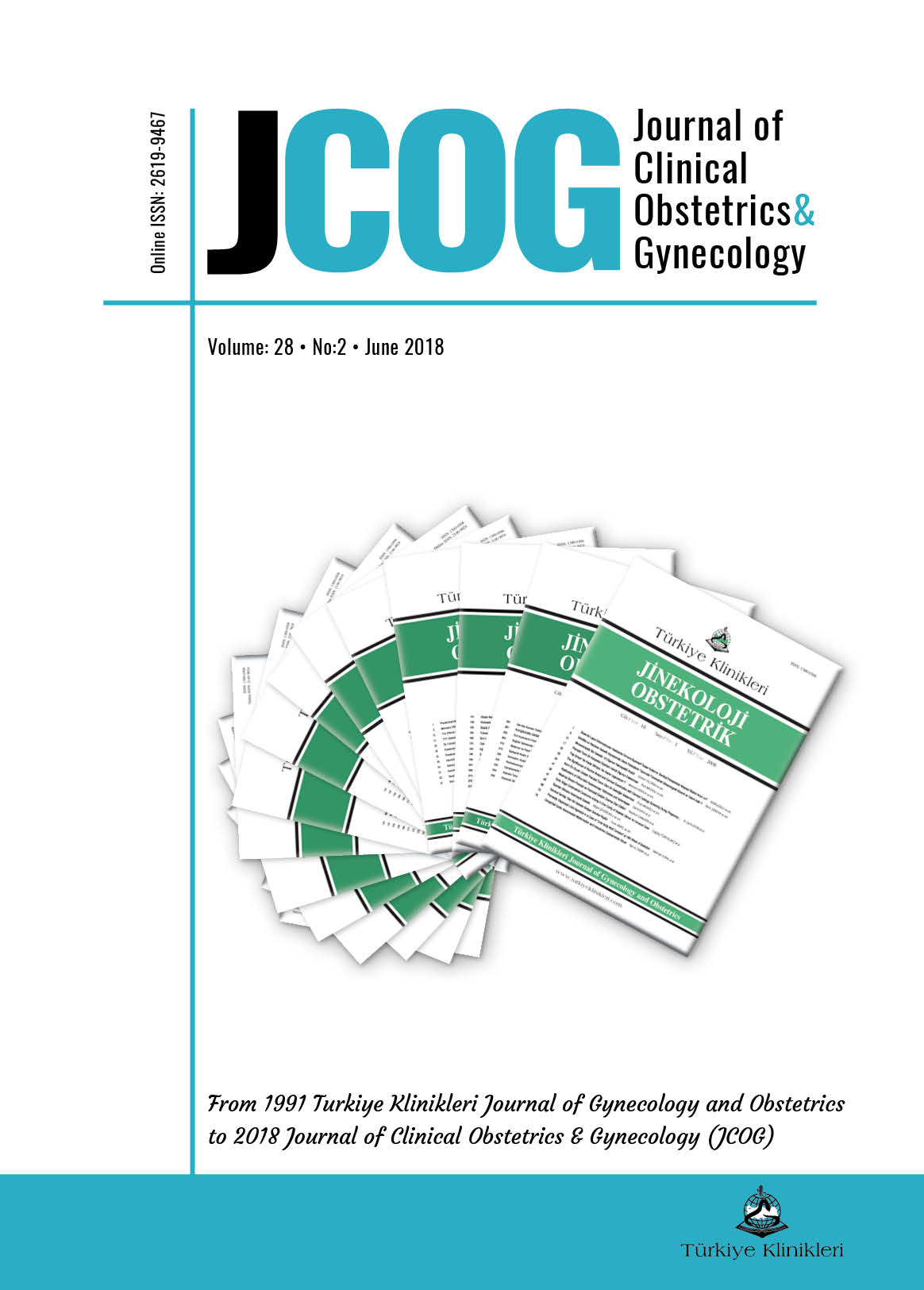Open Access
Peer Reviewed
ORIGINAL RESEARCH
2552 Viewed1366 Downloaded
The Effects of Outside-in Versus Inside-out Transobturator Tapes, for Stress Urinary Incontinence, on Sexual Function and Quality of Life: A Prospective Study
J Clin Obstet Gynecol. 2018;28(2):52-9
DOI: 10.5336/jcog.2018-61485
Article Language: EN
Article Language: EN
Copyright Ⓒ 2025 by Türkiye Klinikleri. This is an open access article under the CC BY-NC-ND license (http://creativecommons.org/licenses/by-nc-nd/4.0/)
ABSTRACT
Objective: To assess the effects of outside-in versus inside-out transobturator tapes for stress urinary incontinence on sexual function, quality of life and psychosocial state. Material and Methods: The study was performed on a total of 101 females, who underwent transobturator tape outside-in or inside-out procedures for stress urinary incontinence with no concomitant prolapse repair, between September 2014 and October 2015 at the clinic in Istanbul, and completed a validated quality of life, sexual function, and psychosocial state questionnaires before and after surgery. The scales used for the assessment included the Hospital Anxiety and Depression Scale, Pelvic Organ Prolapse/Urinary Incontinence Sexual Questionnaire-12 and Sexual Quality of Life Questionnaire-Female. Results: The HADS scores showed a statistically significant decrease (an indicator of improvement of anxiety and depression) in the postoperative period in both the groups (p<0.05). The PISQ-12 scores increased in both the groups in the postoperative period, indicating improvement (p<0.05). The preoperative sexual and partner relationship SQoL-F scores were significantly higher in the inside-out group than in the outside-in group (p<0.05). Conclusion: The results of this study suggest that transobturator tape procedures for stress urinary incontinence have a positive outcome on female sexual function and quality of life. However, further prospective studies, with more participants, are warranted to support these preliminary findings to be able to compare the impact of transobturator tape outside-in or inside-out routes on female sexual function, quality of life and psychosocial state more precisely.
Objective: To assess the effects of outside-in versus inside-out transobturator tapes for stress urinary incontinence on sexual function, quality of life and psychosocial state. Material and Methods: The study was performed on a total of 101 females, who underwent transobturator tape outside-in or inside-out procedures for stress urinary incontinence with no concomitant prolapse repair, between September 2014 and October 2015 at the clinic in Istanbul, and completed a validated quality of life, sexual function, and psychosocial state questionnaires before and after surgery. The scales used for the assessment included the Hospital Anxiety and Depression Scale, Pelvic Organ Prolapse/Urinary Incontinence Sexual Questionnaire-12 and Sexual Quality of Life Questionnaire-Female. Results: The HADS scores showed a statistically significant decrease (an indicator of improvement of anxiety and depression) in the postoperative period in both the groups (p<0.05). The PISQ-12 scores increased in both the groups in the postoperative period, indicating improvement (p<0.05). The preoperative sexual and partner relationship SQoL-F scores were significantly higher in the inside-out group than in the outside-in group (p<0.05). Conclusion: The results of this study suggest that transobturator tape procedures for stress urinary incontinence have a positive outcome on female sexual function and quality of life. However, further prospective studies, with more participants, are warranted to support these preliminary findings to be able to compare the impact of transobturator tape outside-in or inside-out routes on female sexual function, quality of life and psychosocial state more precisely.
MENU
POPULAR ARTICLES
MOST DOWNLOADED ARTICLES





This journal is licensed under a Creative Commons Attribution-NonCommercial-NoDerivatives 4.0 International License.










